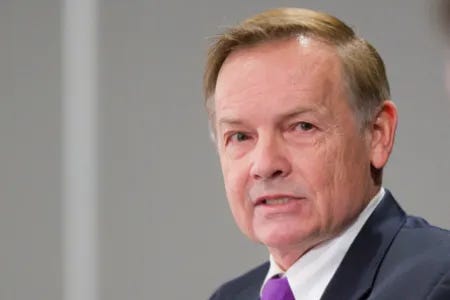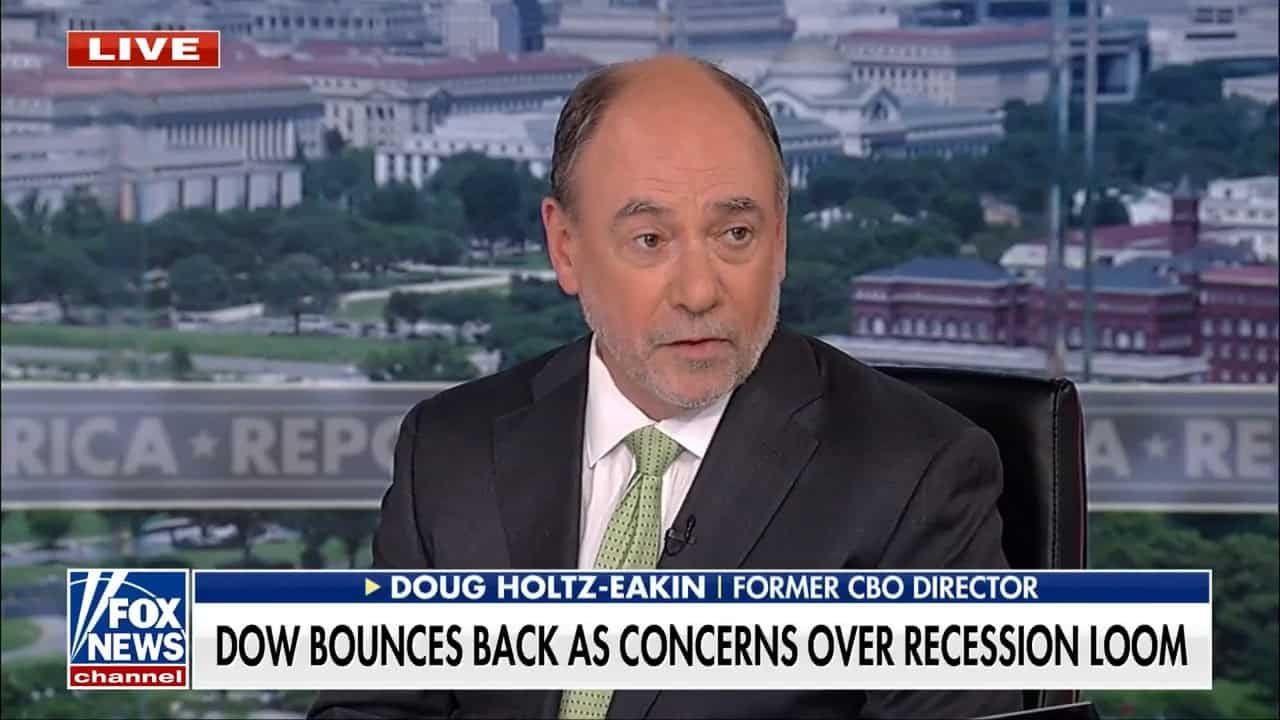Playing DOGE ball
Federal deficits imperil American interests and families, FreeCons warn
A key distinction between Freedom Conservatives and our rivals on the nationalist-populist Right is that, to put it bluntly, we truly care about Washington’s reckless spending. They do not.
In our 2023 statement of principles, FreeCons described the “skyrocketing federal debt” as “an existential threat to the future prosperity, liberty, and happiness of Americans.”
“We commit to building a constructive reform agenda that can restore America’s fiscal sustainability,” the statement continued, “ensuring that future generations inherit a more prosperous and secure nation than the one we now inhabit.”
In their 2022 statement of principles, National Conservatives made no mention of the issue.
While supporting the intentions of the Trump administration’s DOGE initiative, FreeCons recognize that spending nips, program tucks, and even major reductions in the federal workforce won’t close deficits by much. They must be accompanied by sweeping reforms to the entitlement programs that are primarily responsible for budget growth over time.
Today we feature FreeCon signatories who champion fiscal responsibility and insist that conservatives cannot build a durable governing majority in America unless they take the problem seriously.
Bad incentives
Bill Hoagland is senior vice president at the Bipartisan Policy Center and a former vice president of public policy for CIGNA Corporation. He’s also a FreeCon signatory.
Hoagland spent 33 years in federal government service, including 25 years on the U.S. Senate staff as a budget aide and program director. He has participated in major budget negotiations such the 1985 Gramm-Rudman-Hollings Budget Deficit Reduction Act, the 1990 Omnibus Budget Reconciliation Act, and the historic 1997 Balanced Budget Agreement.
In a series of papers for BPC, Hoagland and his coauthors are recommending changes to Part B of the Medicare program, which pays physicians to deliver medical services.
Despite previous reform attempts, “fee-for-service remains the predominant payment model” in Medicare Part B, they wrote, while being “inherently misaligned with policymakers’ efforts to encourage high-quality care at lower cost to Medicare.
“Moreover, it rewards clinicians for delivering a high volume of expensive services regardless of their value to the patient.”
Hoagland and his colleagues suggest alternative payment models that better align the incentives faced by providers with the interests of patients and taxpayers.
Kicking the can
Douglas Holtz-Eakin is founder and president of the American Action Forum, former director of the Congressional Budget Office, a former chief economist in the White House, and a FreeCon signatory.
Before entering public service, he built an international reputation as a scholar, beginning his career at Columbia University and then serving as Trustee Professor of Economics at Syracuse University’s Maxwell School and chairman of the economics department.
A recent Guardian article about budget outlines emerging from Capitol Hill featured Holtz-Eakin’s concerns about the package.
“This is a very unambitious piece of tax legislation, from an economic policy point of view,” he told the newspaper. “It doesn’t really do much, and I don’t think there’s any real will collectively to do big spending cuts, and they’ve taken off limits the places where that you really do need to reform,” such as Social Security and Medicare.
The piece also featured analysis from Bill Hoagland.
“The budget resolution that they adopted is unique, I would say, somewhat unprecedented,” he said. “What they’ve done here is keep the ball moving by kicking the can further down the road and leaving unsettled a number of differences, particularly on the spending side.”
Medicaid and the needy
A recent American Enterprise Institute forum featured five FreeCon signatories — Scott Winship and James C. Capretta of the American Enterprise Institute, Brian Blase of the Paragon Health Institute, Jessica Riedl of the Manhattan Institute, and Avik Roy of the Foundation for Research on Equal Opportunity — discussing ways to find cost savings in Medicaid while ensuring that the needy retain health insurance.
“Medicaid is a program riddled with inefficiencies, draining taxpayer dollars while failing to serve those most in need,” said Blase, who urged Congress to change the federal government’s open-ended and skewed system of reimbursements to state governments.
Noting Washington’s projected fiscal deficits as far as the eye can see, Capretta argued that, some 15 years after the passage of the Affordable Care Act, most politicians will want to continue to subsidize health coverage for Americans with incomes below the poverty line.
“These people probably do need to be covered with insurance,” he said. The real issue is how to select the best way to “provide them with the subsidy to get into coverage.”
Riedl argued that current deficit projections remain too rosy, assuming lower interest rates than the market is likely to generate, and that only way to “close a budget deficit this big, and one growing so rapidly, is by putting everything on the table.”
That includes Medicaid, the fourth-largest spending program in the federal budget. Since 2013, the number of American living in poverty has fallen by 10 million, yet Medicaid’s monthly enrollment leaped from 54 million to 79 million and its inflation-adjusted cost nearly doubled.
Roy, who also serves as president of the National Institute for Health Care Management, pointed out that government subsidizes health care in multiple ways, including a “very large” tax exclusion for employer-sponsored plans as well as spending on Medicaid, Medicare, ACA exchanges, and programs for veterans and public employees.
Reducing future spending on Medicaid doesn’t require that poor people become uninsured. “There is enormous waste, fraud, and abuse in the Medicaid program,” Roy said, somewhere between 10% and 30%. Among his recommendations were payment reforms and better enforcement of eligibility rules.
Watch the entire conversation here.
In the mix
• Want to reduce America‘s trade deficits? Then you’ll have to do something about Washington’s chronic budget deficits, wrote FreeCon signatory Tiana Lowe Doescher in her regular column for the Washington Examiner.
To the extent foreign investors purchase federal bonds to finance federal spending, there will inevitably be a current-account deficit to offset the capital-account surplus.
“If [President] Trump insists on his refusal to reform our extensive entitlement state,” she wrote, the “trade deficit keeping the bond market afloat is indispensable to financing America’s addiction to endless deficit spending.”
• In a recent piece for the Ronald Reagan Presidential Institute, FreeCon signatory Alexandra Hudson praised efforts to foster civility in public discourse, especially among the next generation of Americans.
“Throughout history, civility and education have contributed to civic renewal, multidimensional human flourishing, and the preservation of freedom,” wrote Hudson, author of the bestselling book The Soul of Civility.
“The wisdom of the past, along with the example set by figures like Ronald Reagan, can help illuminate the path toward a more humane future.”



